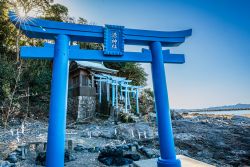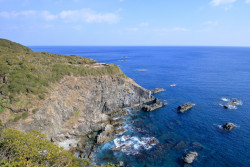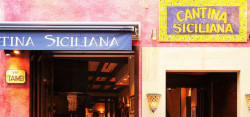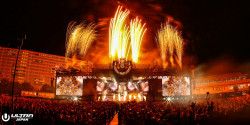
February 24, 2011
February 24, 2011
Originally published on metropolis.co.jp on February 2011 MEAN STREETS Regarding “Nishinari” (Travel, February 11): This is the kind of article I would love to see more of in Metropolis—a real atmosphere piece that’s actually not tied to promoting some sponsor or advertiser for a change. A reason at last to pick up this magazine and […]
By Metropolis
Originally published on metropolis.co.jp on February 2011
MEAN STREETS

Photo by Manami Okazaki
Regarding “Nishinari” (Travel, February 11): This is the kind of article I would love to see more of in Metropolis—a real atmosphere piece that’s actually not tied to promoting some sponsor or advertiser for a change. A reason at last to pick up this magazine and read it! Well written, too. More!—kevcham*
Nice read. Gangsters, black markets and doss-houses—sounds a lot like Yokohama’s Kotobukicho district, right down to the recent attempts to lure in foreign backpackers…
—greenejaponica*
Nishinari should be burned down. It is dirty, it stinks, drunks urinate or fight in the streets at night and it is dangerous. Osaka people don’t go there and most are ashamed to talk about this hell hole.—tamanegi**
A lot of these people are victims of society and, although willing to work daily, are stuck in their situation. Of course, these days we see less and less empathy for people less fortunate than us.—stevecpfc**
Nishinari has certainly cleaned itself up in the last few years. People there are now actually making an effort to properly dispose of trash. The place was a complete dump five years ago. That being said, it’s funny how people refer to this place as dangerous and a “hell hole.” What nonsense. Statistically speaking, Nishinari has a lower crime rate than other parts of Osaka, e.g. Namba or Umeda. I’ve walked through the Kamagasaki “ghetto” area countless times at night. Try doing that in the backstreets of Manila or Phnom Penh.
—thuganomics79**
It sounds scary. I would be afraid that anything I left in my room would be stolen, or that I’d be pick-pocketed on the street. No thanks. I’ll take my vacations at a gorgeous, clean, smoke-free location somewhere in the tropics, thank you.—HermioneGranger**
IN A DOZE
Regarding “Catnap Culture” (The Last Word, February 11): With the average Tokyo worker’s commute still somewhere in the range of 90 minutes each way, and office workers still stuck in the old unproductive first-train-to-last style of working, I’m not surprised there’s so much napping going on. Students in middle school and high school who are involved in sports, bands, and other practice-heavy activities often get to school by 6:30 in the morning, and don’t leave until 7 or 8 at night, on top of commuting, studying, and everything else. I always resented executives who thought nothing of sleeping in meetings, though.—shirokuma2011**
It’s odd—is it me, or is the author vaguely disapproving of naps? Since I’ve been here, I’ve gotten quite into the idea, and getting 20 minutes’ sleep on the train is quite a decent thing. Almost productive. I’m surprised he didn’t quote recent surveys that claimed Japanese had the lowest amount of nightly sleep, but this in-the-day napping was noted in that report. —chottomatte**
UNSOLICITED offer OF THE WEEK
Dear Sirs/Madam,
We have helicopter Kamov-26 available for sale.
YOM: 20.11.1975
The price 300,000 USD only!
Located in Russia.
We are glad to inform you that “Aviation Services” is the in the [sic] lead licensed by IATA/ICAO air carrier of live cargoes and one-day old chickens. Our airline has long-term experience in it. —Anatoly Ryabov
* via Metropolis
** via Japan Today
Metropolis wants to hear from you. To send your comments, . Note that letters may be edited for length and clarity.







